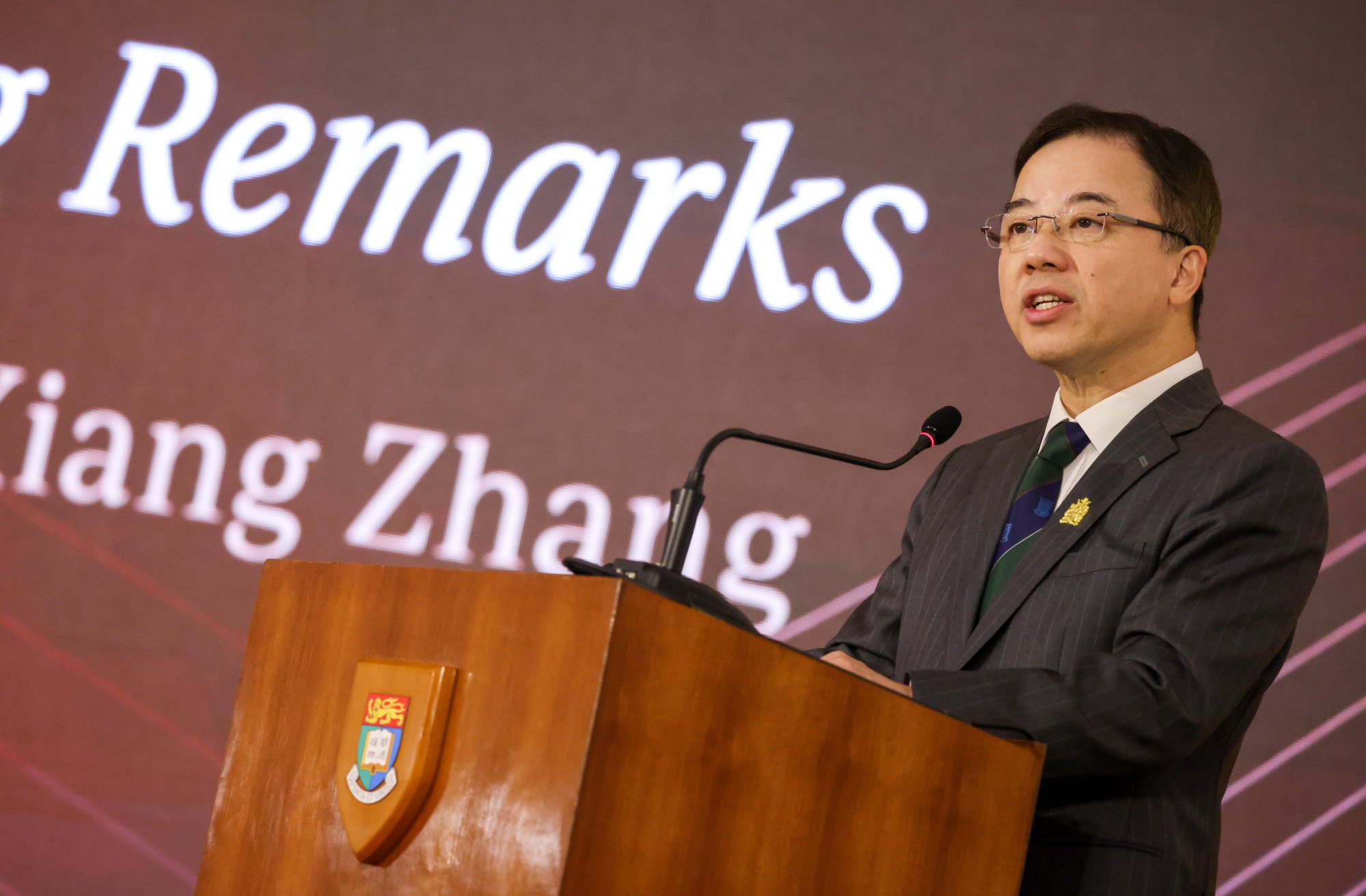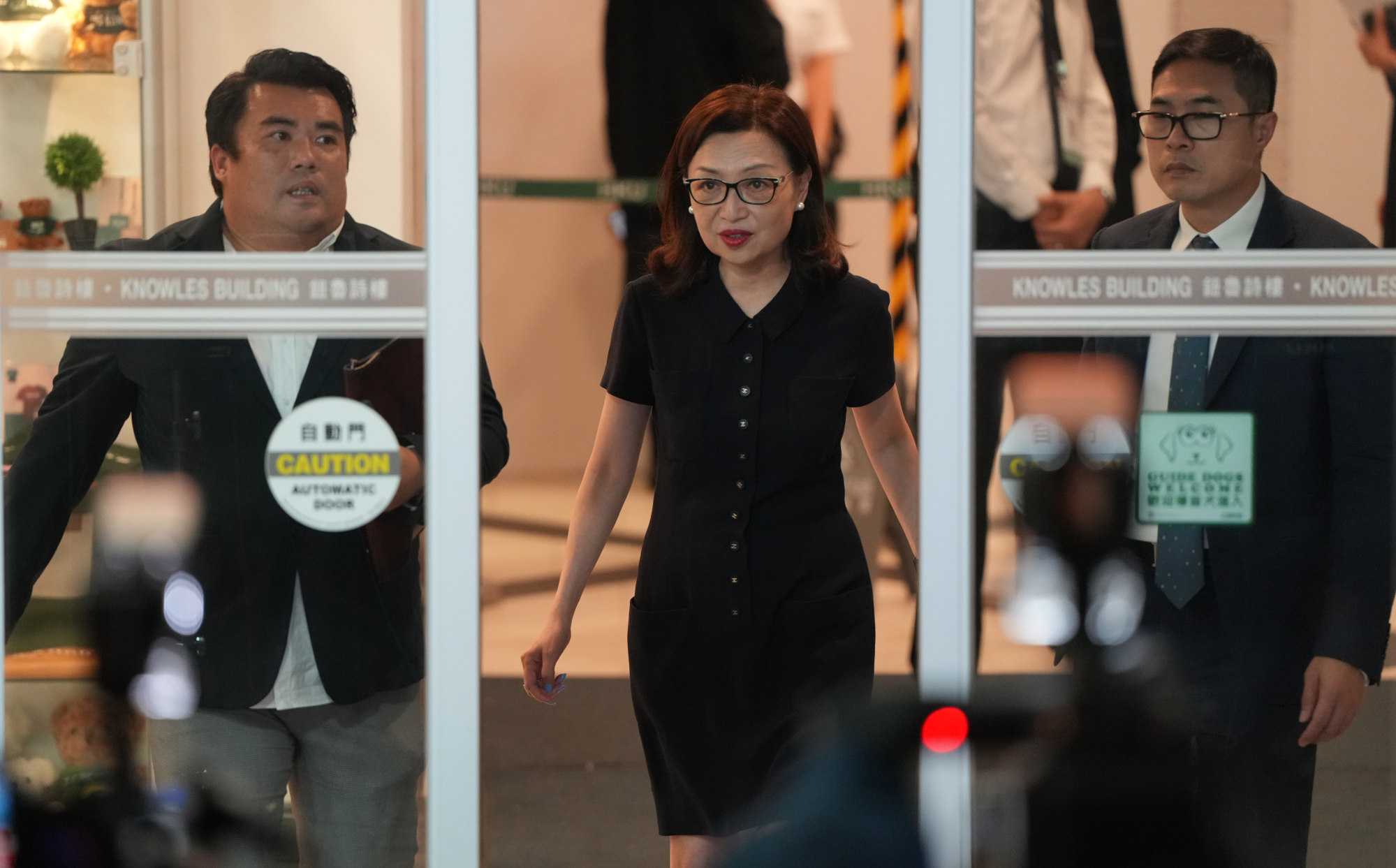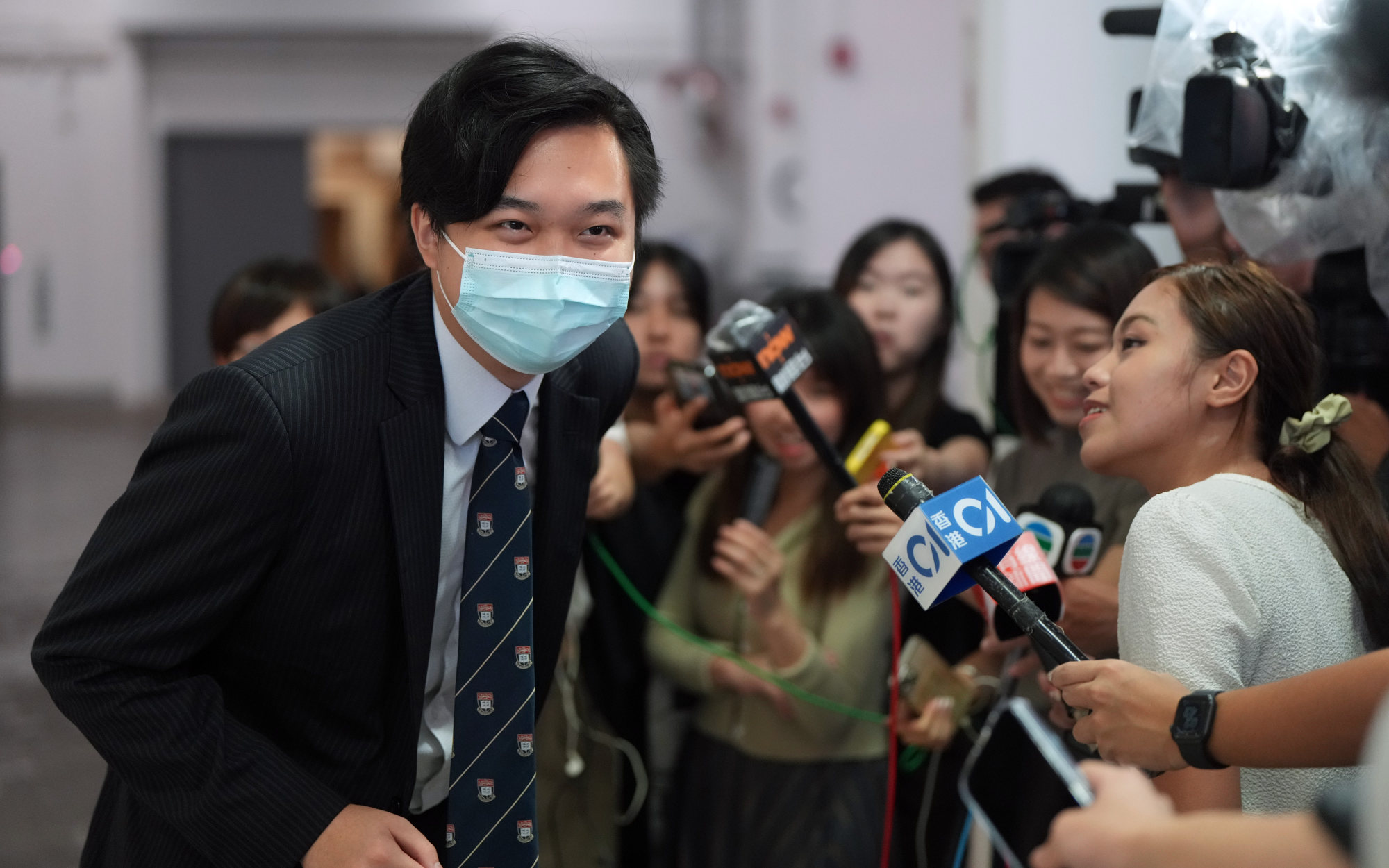
University of Hong Kong to set up panel to look into misconduct allegations against president Xiang Zhang
- Governing council chairwoman Priscilla Wong says panel will examine issues emanating from anonymous complaints about HKU president Xiang Zhang
- Zhang took the chance at special meeting to blast proposal to establish office on campus for council chair, source says
The governing body of Hong Kong’s oldest university will set up a five-member panel to look into misconduct allegations against its president, as a row among leaders of the institution deepened.
It also emerged on Monday during a special meeting to discuss anonymous email complaints against University of Hong Kong (HKU) president and vice-chancellor Professor Xiang Zhang that a controversial plan was in the works for the governing council chair to have an office on campus.
Council chairwoman Priscilla Wong Pui-sze said it was resolved at Monday afternoon’s meeting that a panel would be set up to look into issues emanating from the emails, under the university’s “whistle-blowing” policies and procedures.
“Following the law and our procedures, we will restore and analyse the truth in a fair and just manner, as well as submit the report to the council for follow-up,” she said.

Wong added the panel would arrive at its findings through “evidence-based investigation in an unbiased manner” to ensure the outcome was fair.
She also denied the council had suspended Zhang from his duties as president.
“Zhang is still our president. We for the moment do not have any assumptions. We will handle the current complaints with care. We will take actions only when we have identified the truth,” she said.
The panel, chaired by council member and university audit committee chairman Jimmy Ng Wing-ka, will include fellow members Brian Stevenson and Jason Chiu Tsz-kiu.
Wong said the names of the two non-council members on the panel would be announced soon.
The panel is expected to report to the council within 12 weeks and the governing body will consider whether follow-up action is necessary.
Council members last month received emails from anonymous whistle-blowers, who accused Zhang of misconduct and mismanagement.
The allegations included inappropriate handling of donations from a mainland Chinese corporation, recruiting without bidding a headhunter from the United States to hire a pro-vice-chancellor in institutional advancement and a medical dean, and asking that the candidates have a US university background.
The special meeting, called to determine the way forward in handling the whistle-blowers’ complaints, was postponed from last Tuesday because of an insufficient quorum. Zhang also sent a legal letter to the council to demand his lawyer be allowed to sit at the meeting and for more time to prepare.
Zhang urged the panel to handle the incident “in a fair and just manner” after the meeting.
He said the whistle-blowers had deliberately distorted the facts to discredit him and the university, which constituted “a serious defamation”.

Zhang said his team of lawyers had confirmed that all the accusations were “baseless and maliciously fabricated” after they had reviewed documents, analysed the facts and examined HKU policies and the legal position.
“I have a solid legal basis to pursue defamation lawsuits against the rumourmongers,” Zhang said. “However, they have chosen to hide behind anonymity, making it difficult to directly hold them accountable.”
Zhang said he was “extremely angry and disappointed” about the distortion of information and use of the media to “launch smear campaigns” against him, HKU and people who supported the university.
He said the most disappointing aspect of the whole saga was that communications between him and the council had also been leaked, which sparked concern as to whether it could handle the accusations against him in an impartial manner.
Council member Charles Li Xiaojia, whose term on the governing body ends this month, said the university would need to follow the rule of law to handle the situation.
“We must only draw a conclusion after the investigation has identified evidence. Hong Kong is a society that adopts the rule of law, where everyone is protected by the presumption of innocence, especially in our university,” Li, the former CEO of Hong Kong Exchanges and Clearing, said after the meeting. “We should not rush to judgments.”
He said support should be given to Zhang, the council, teaching staff and students during the investigation.
“We need to make sure whatever is done to the great name of this university does not become permanent,” he said.
“While the process is running for the next few weeks and months, maybe longer, the university should not be put into a political infight, conflicts and disputes.”
He added: “If these accusations are found to be true, we will find ways to amend damage done to the university and someone will have to be held accountable.”
A source said Zhang, in another twist, also took the chance to criticise a proposal to set up an office on campus for council chairwoman Wong. Tensions between the pair are reportedly at boiling point.
The source said Zhang warned that the move would have a negative impact on HKU and that he and others were concerned about it.
He added it could pave the way for the council’s increasing involvement in the daily management of the university and could undermine its academic autonomy.
Another source said the president was told the council’s office would preferably be in the Knowles Building, where the president’s office was.
It is understood that Zhang conceded he had different views on university management than Wong, which had resulted in a tense relationship.
He also admitted he and individual council members had their differences and that the accusations against him would still “inevitably cause harm to the reputation of the university”.

Casey Chik Yau-hong, an undergraduate representative on the council, said the governing body had to consider different criteria when appointing external members to the panel.
He said the criteria included whether one had the necessary expertise, and whether one was trusted by the public as well as students.
“Credibility is at stake – the council cannot afford to fail the public again,” he warned.


